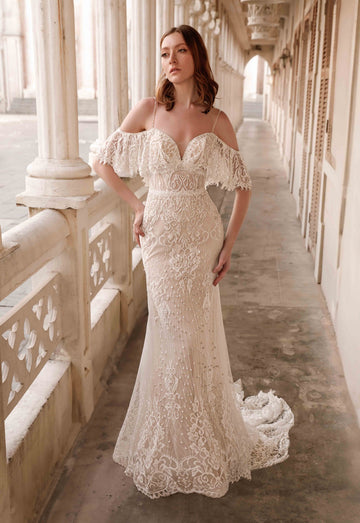How to Ensure Ethical Practices Among Wedding Dress OEM Suppliers
How to Ensure Ethical Practices Among Wedding Dress OEM Suppliers
The wedding dress industry is a vibrant and integral part of the global fashion landscape. However, it also faces significant challenges regarding ethical practices, particularly among Original Equipment Manufacturer (OEM) suppliers. In this article, we will explore essential steps that brands can take to ensure that their wedding dress OEM suppliers adhere to ethical standards, providing not just quality products, but also responsible production practices.
Understanding the Importance of Ethical Practices
Ethical practices in the fashion industry are not merely trends; they are necessary commitments to sustainability and social responsibility. The wedding dress market often involves complex supply chains, where manufacturers may source materials from different regions, employing various labor forces. Ensuring ethical practices among OEM suppliers requires a comprehensive approach that covers labor rights, environmental sustainability, and fair trade.
1. Research and Verification
The first step in ensuring ethical practices is conducting thorough research on potential OEM suppliers. This involves:
- Background checks: Investigate the supplier’s history, reputation, and previous partnerships.
- Certifications: Look for certifications related to ethical labor practices, such as Fair Trade and ISO 14001.
- Reviews and testimonials: Seek feedback from other brands that have worked with the supplier.

2. Establish Clear Ethical Guidelines
After identifying potential suppliers, it is crucial to establish clear ethical guidelines that align with your brand's values. These guidelines should cover:
- Labor Standards: Set expectations regarding working conditions, wages, and workers' rights.
- Environmental Impact: Include requirements for sustainable practices in production, such as waste management and energy efficiency.
- Transparency: Demand transparency in supply chains to track raw materials sourcing and labor practices.
| Guidelines for Supplier Selection | Considerations |
| Labor Standards | Fair wages and safe working conditions |
| Environmental Sustainability | Recycled materials, minimal waste |
| Transparency | Clear reporting and open communication |
3. Conduct Regular Audits
Regular audits of OEM suppliers are indispensable in enforcing ethical practices. These audits should be both announced and unannounced to get an accurate picture of the supplier’s operations. During these audits, consider:
- Worker Interviews: Speak directly with workers to understand their experiences and conditions.
- Facility Inspections: Examine the working environment, safety measures, and overall compliance with your ethical standards.
- Documentation Review: Assess payroll records, contracts, and other pertinent documents to ensure compliance.
4. Collaborate with NGOs and Certifications
Collaborating with non-governmental organizations (NGOs) specializing in labor rights and environmental issues can provide invaluable expertise. Consider partnering with organizations that offer:
- Training programs: Help suppliers improve their practices.
- Compliance certifications: Validate that suppliers meet ethical standards.
- Crisis management: Assist in resolving any ethical breaches effectively.
5. Foster a Culture of Ethical Responsibility
Creating a culture of ethical responsibility within your organization is vital. Engage your employees in ethical initiatives by:
- Employee Education: Provide training on the importance of ethical sourcing and sustainable practices in fashion.
- Incentives: Reward teams that effectively implement and promote ethical practices.
- Internal Policies: Develop policies and protocols that prioritize ethical sourcing and manufacturing.
Common Questions About Ethical Practices Among Wedding Dress OEM Suppliers
As you navigate the complex world of ethical sourcing, you may have additional questions. Here are some common concerns:
1. Why are ethical practices important in wedding dress manufacturing?
Ethical practices ensure that wedding dresses are produced in humane conditions, protecting workers’ rights and promoting sustainability. As consumers increasingly demand transparency, brands must prioritize these practices to maintain trust and loyalty.
2. How can small brands ensure their OEM suppliers are ethical?
Small brands can start by selecting local suppliers who are easier to monitor. Additionally, investing in supplier training and establishing strong relationships can help maintain ethical standards.
3. What are the consequences of partnering with unethical suppliers?
Working with unethical suppliers can lead to severe repercussions, including damage to brand reputation, legal penalties, and loss of consumer trust. Ethical sourcing helps brands avoid these pitfalls, ensuring long-term success.
Summary and Recommendations
Ensuring ethical practices among wedding dress OEM suppliers is a multifaceted challenge, requiring diligence, research, and ongoing commitment. By conducting thorough research, establishing clear guidelines, conducting regular audits, collaborating with organizations, and fostering a culture of responsibility, brands can successfully navigate the complexities of ethical sourcing. Remember, prioritizing ethics is not only beneficial for your brand but is also necessary for the welfare of workers and the environment. As you work to improve your supply chain practices, remain transparent about your efforts and engage consumers in your journey towards ethical responsibility.
As the wedding dress industry continues to evolve, so should our commitment to ethical practices. By taking these steps, brands not only uphold their integrity but also contribute to a more sustainable and just fashion landscape.
